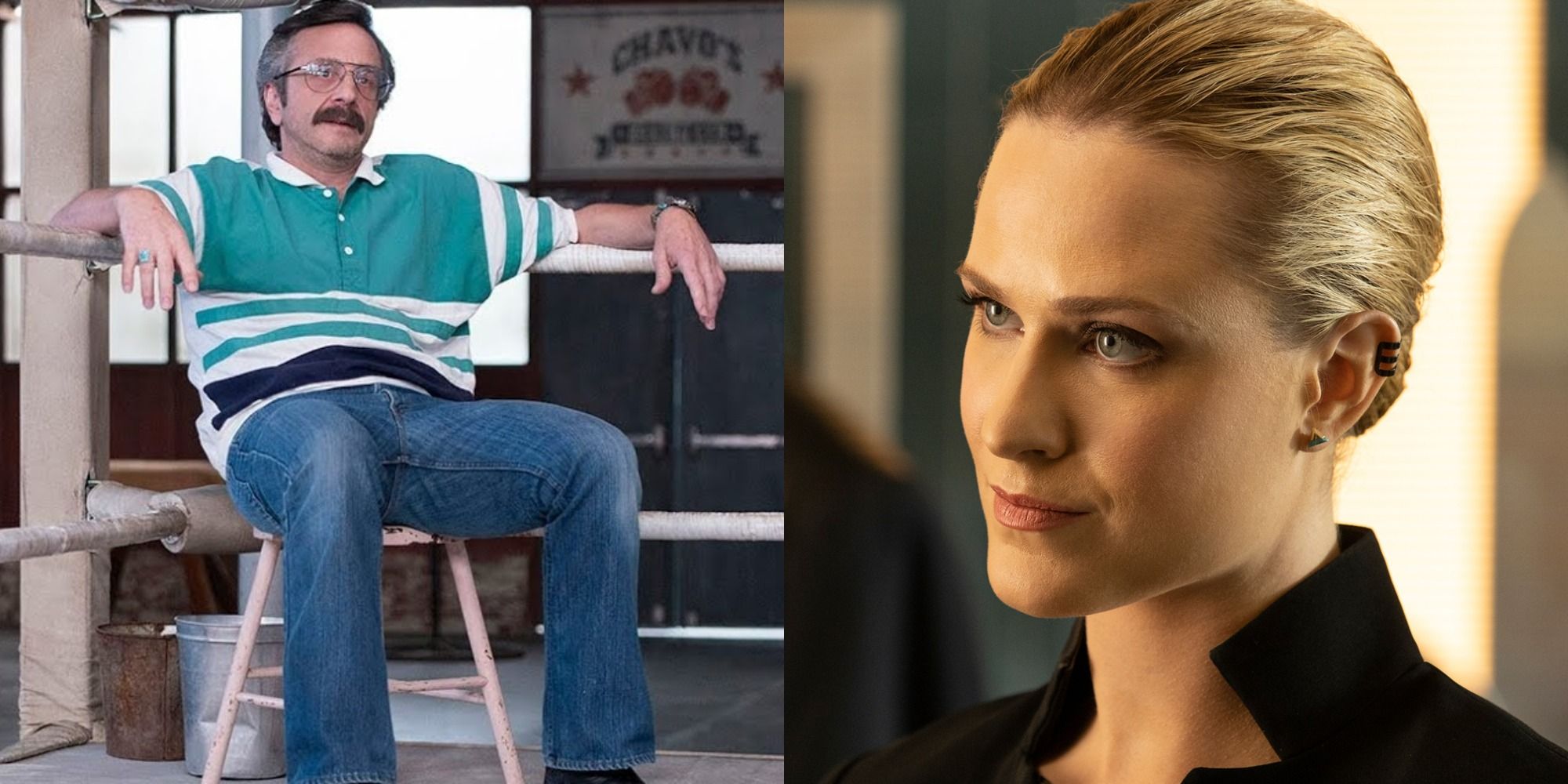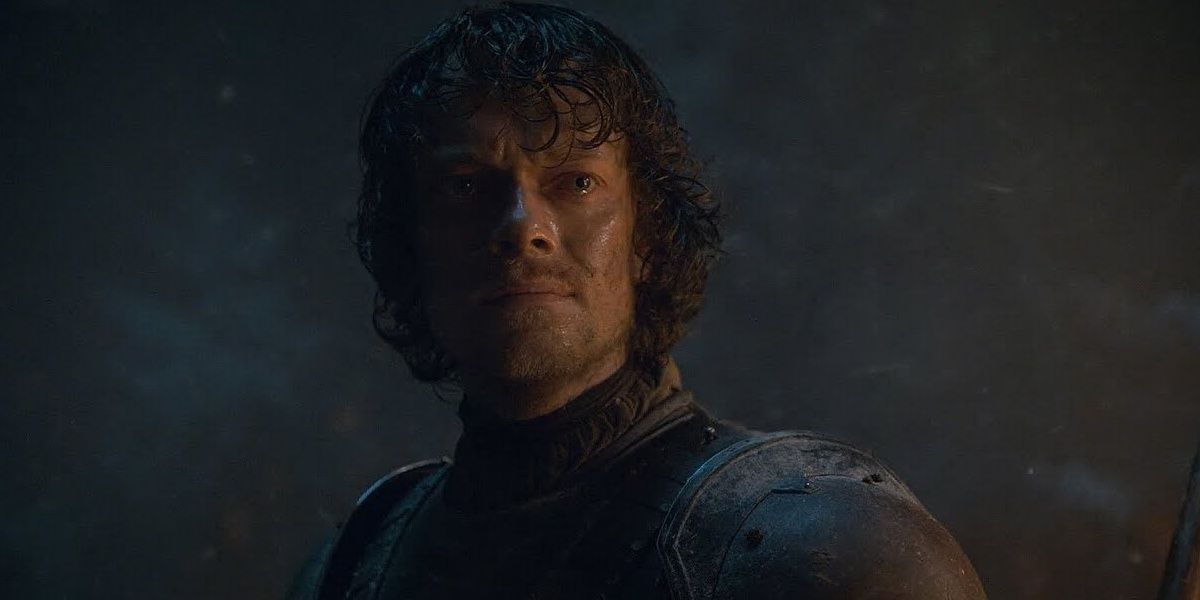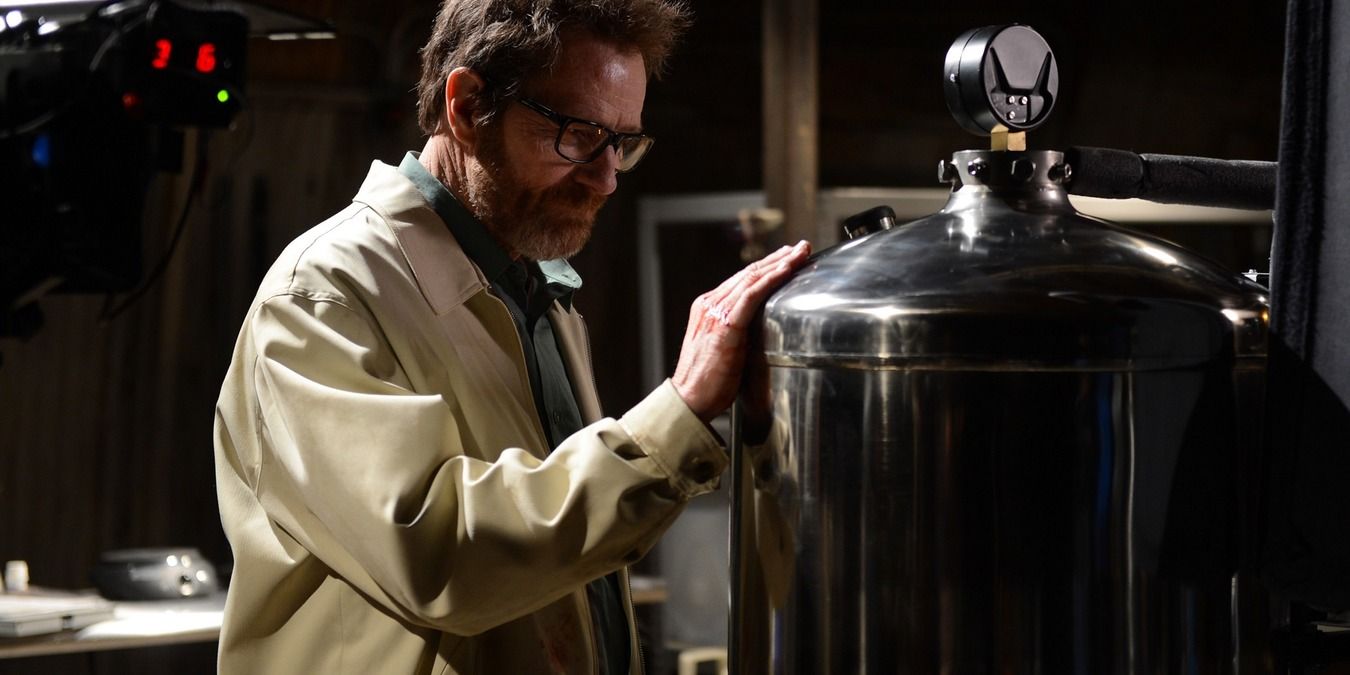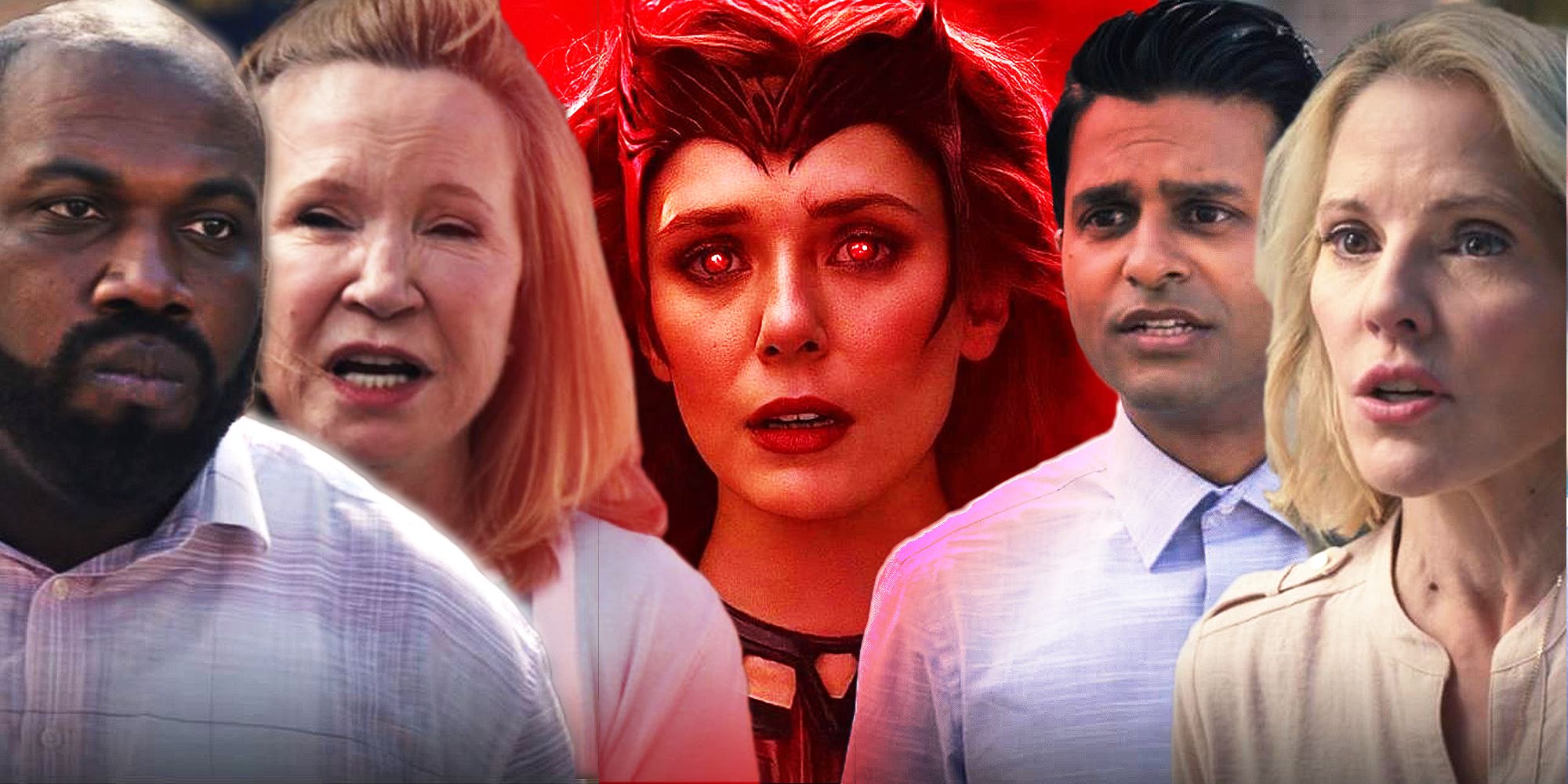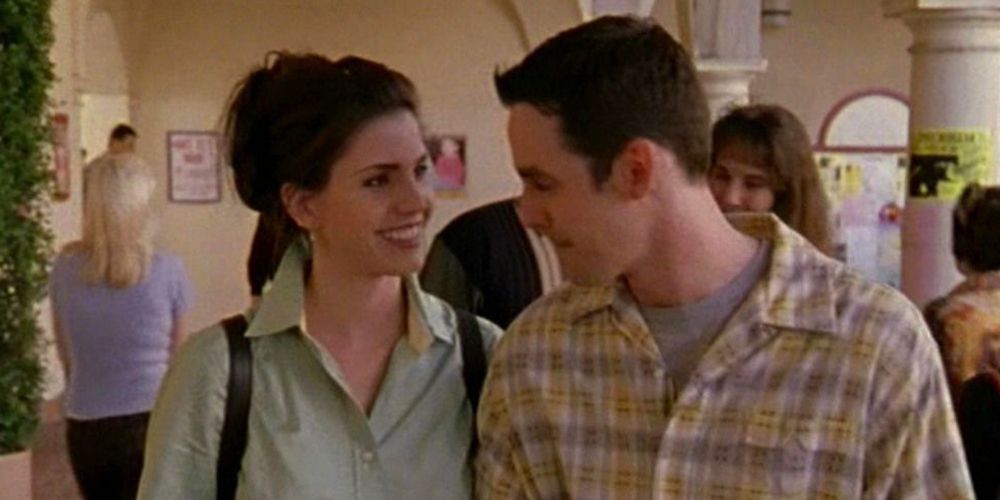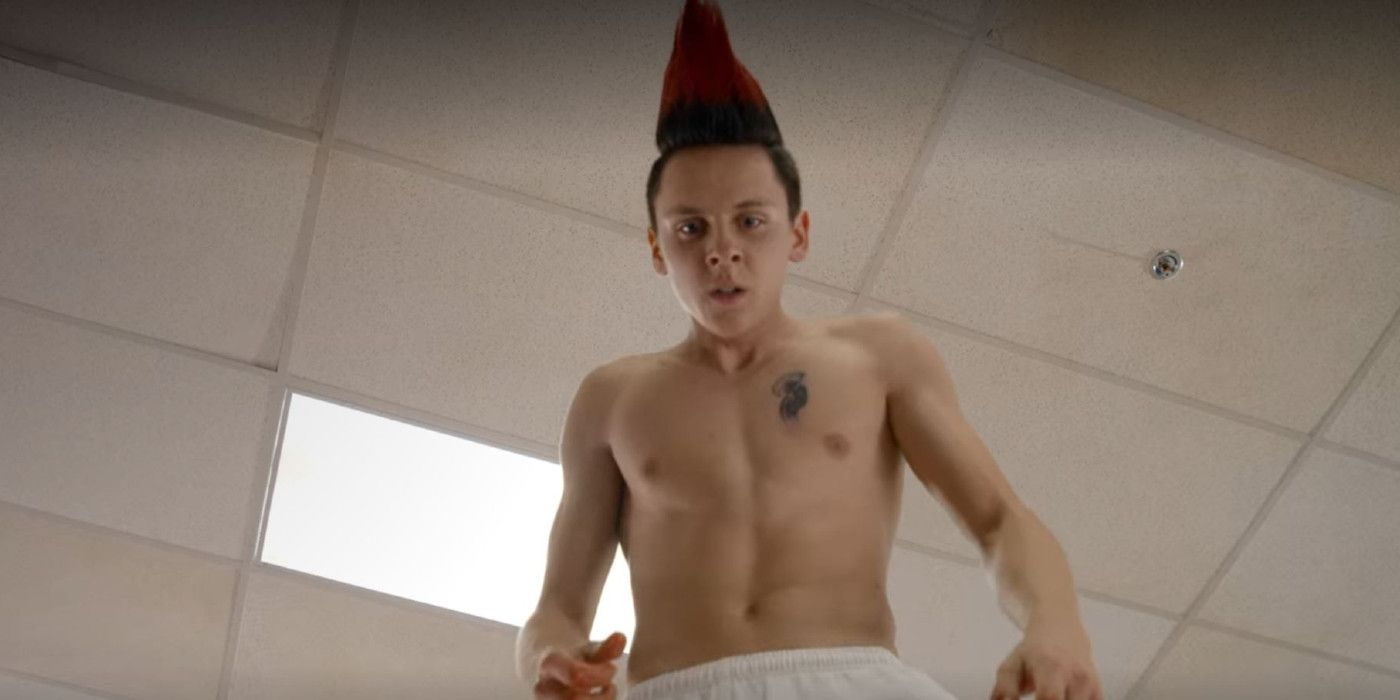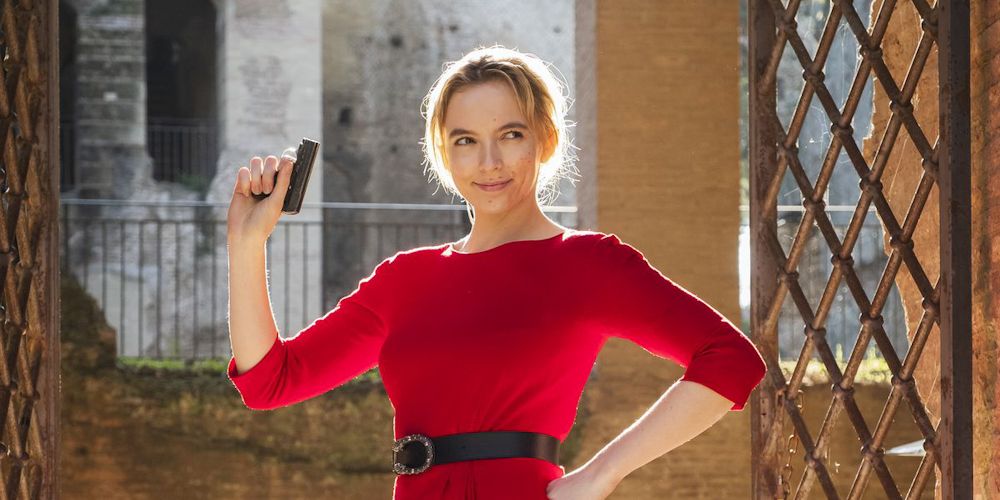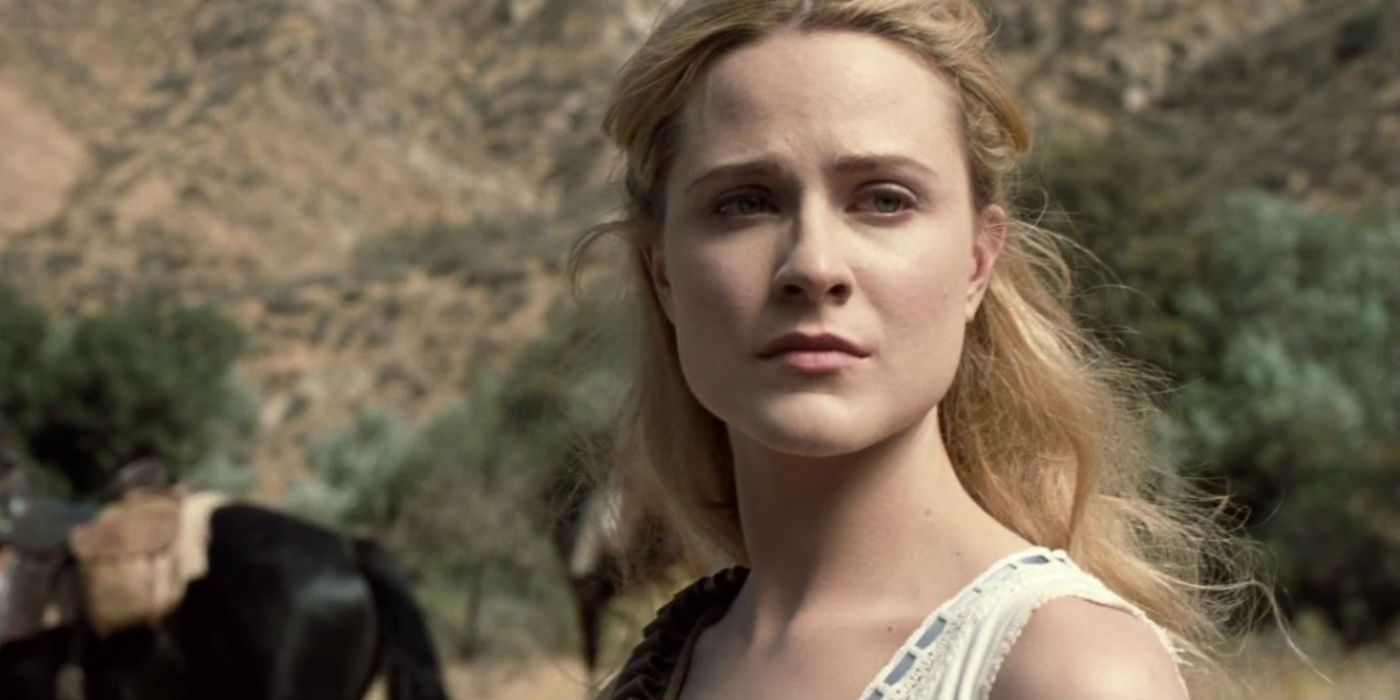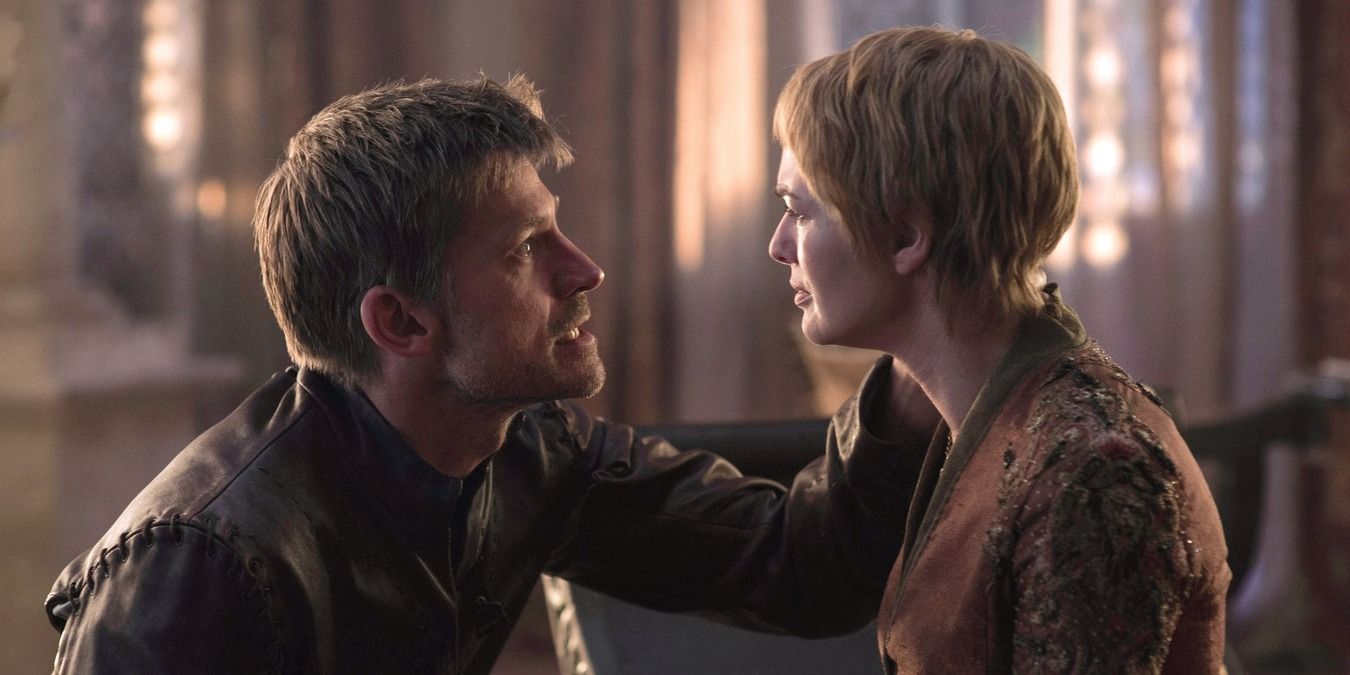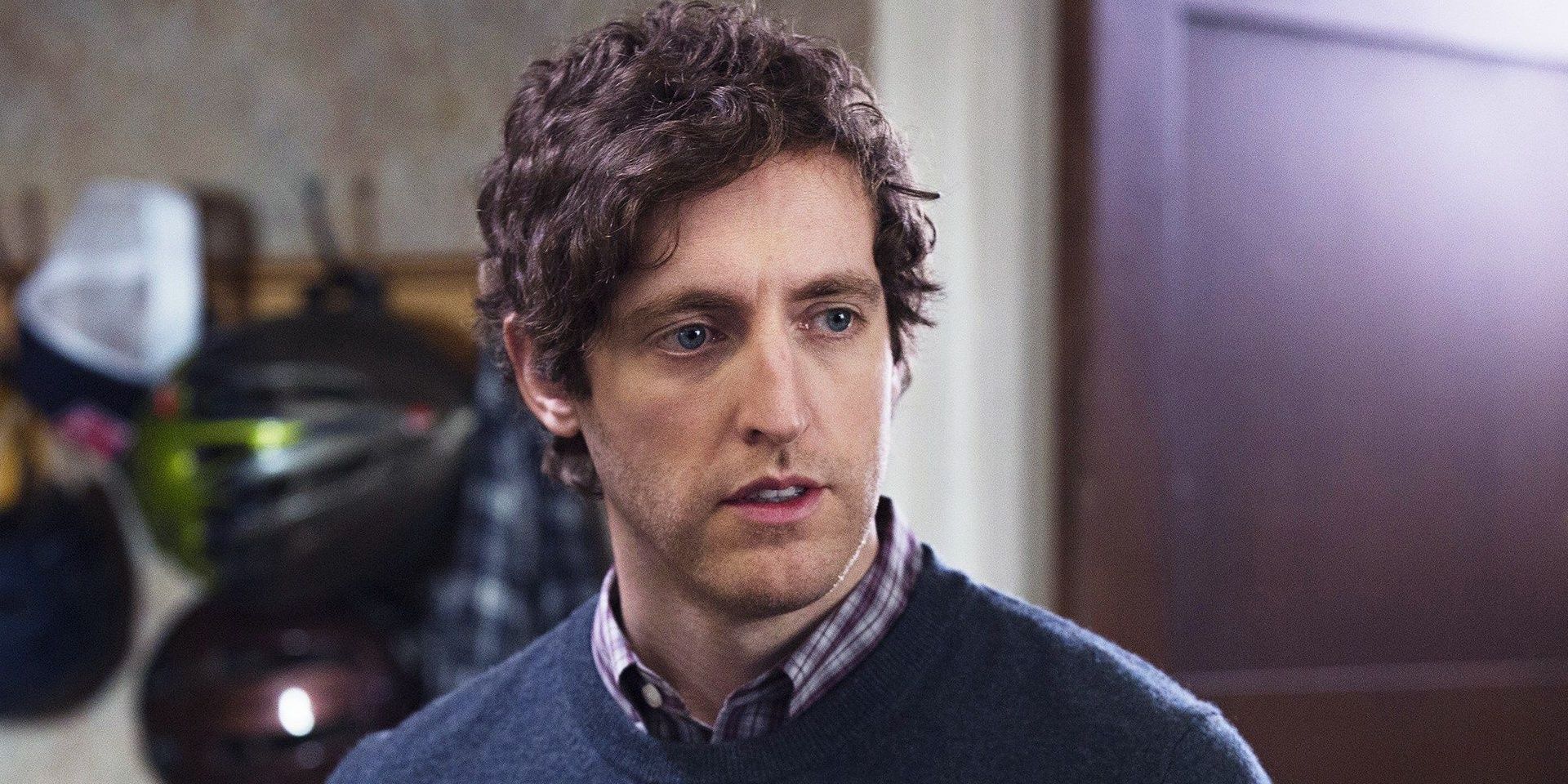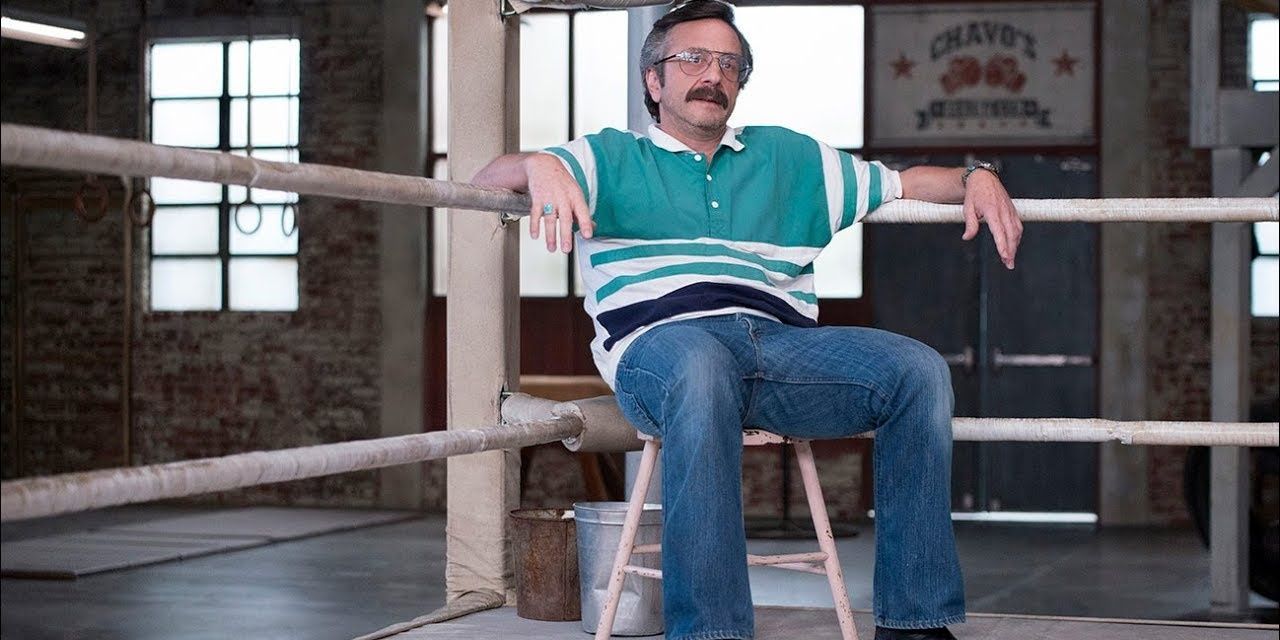When considering a concept as vague as "redemption," it is important to note that characters who go through the whole cycle from sin to atonement aren't necessarily antagonists. Stories are improved not when their positive characters make mistakes, but when they learn from them and become better people.
That being said, there are several instances in which character transgressions have been so extreme that it's downright shocking they obtain forgiveness at the end of their respective arcs. Of course, there is no crime that deserves eternal punishment, but it doesn't make sense to redeem someone before they put enough work into themselves.
Theon Greyjoy — Game Of Thrones
Theon starts his arc as an overly self-involved brat, who, although bound to the Starks, never really forgets about his association with House Greyjoy. His arrogance is merely a cover for his many insecurities, however, because it's quickly made evident how little his father, Balon, thinks of him.
After Theon captures Winterfell, he swears to Bran Stark that there will be no repercussions, but this oath is broken when he executes Rodrik Cassel. He remains behind with his new territory despite advice to the contrary, which leads to the unbearable experiences he has with Ramsay Bolton. Although Theon sacrifices his life to slow the Night King's advance towards Bran, does this act deserve atonement? It's not like Arya's that far behind.
Walter White — Breaking Bad
Walter White's teacher persona is in extreme contrast with the Heisenberg character that emerges later — he mutates from a timid suburban man to a ruthless meth lord with two things on his mind: money and power.
He ruins his family beyond recognition and murders (or indirectly causes the deaths of) several relatively innocent people but still believes that he should leave behind some sort of legacy. Fans have argued that Walter's sacrifice at the end satisfies all the criteria for redemption, but it doesn't undo all the harm he's done.
Wanda Maximoff — WandaVision
It's unbelievable that Wanda gets away with little more than a slap on the wrist after everything she subjects Westview and its inhabitants to. There is no logical reason for her cruel, practically violent behavior against those she keeps trapped against their will, forced to play roles crafted for them.
Wanda doesn't think about them at all, not until Agatha temporarily removes her control over the residents, prompting them to mill around her with an overload of requests. Instead of releasing them, Wanda loses control and causes even more harm to those poor people.
Cordelia Chase — Buffy The Vampire Slayer
Cordelia's early storyline has her playing a decidedly negative role: a popular high school bully with a bloated ego. She spends most of her time talking about herself, often when the Scooby Gang is in the middle of a serious discussion.
Cordelia is exceptionally hostile towards Xander, so forcing a romance between the two characters did feel a bit odd to some fans. She truly changes in Angel, the Buffy spin-off, when she gains the power of empathy. Literally.
Hawk — Cobra Kai
Hawk is originally one of the quieter kids in Cobra Kai, constantly bullied for his shyness as well as his appearance. When Johnny Lawrence brings attention to his overly nervous personality, Hawk undergoes a radical change, turning into the very kind of bully he used to hate.
Granted that Kreese is largely at fault for his violent aggression, that doesn't excuse the fact that Hawk breaks his best friend Demetri's arm for nothing more than petty revenge. Luckily, Hawk returns to his senses, but the entire process takes a lot longer than it should have.
Villanelle — Killing Eve
To be fair, nobody other than Eve Polastri would even dream of absolving Villanelle of her crimes, but that's exactly the problem. The series clearly doesn't take the opinions of other characters into account when it comes to Villanelle, because that's the only way to extend the psychosexual drama between her and Eve.
As exciting as the first two seasons are, the third is simply too exaggerated for audiences to retain their suspension of disbelief. Villanelle shoots and leaves Eve for dead, but the narrative treats the events that follow like a bizarre form of romance.
Dolores Abernathy — Westworld
Dolores Abernathy is an unassuming character, completely clueless about the real nature of her simple world and the guests who regularly pay her visits. Over time, the Wyatt side of her character emerges through layers of programming, converting Dolores into an incarnation of her alter-ego, the Deathbringer.
Dolores displays nothing but cold-blooded hatred as Wyatt, refusing to hold back against the humans who have tormented her kind for decades. Dolores's rage is legitimate; her actions are not.
Jaime Lannister — Game Of Thrones
Jaime Lannister's primary traits — shamelessness, egotistical, apathetic — shape his personality for the first few seasons, until he encounters Brienne of Tarth. Once he befriends her, Jaime begins to change, however slightly, for the better.
This path towards goodness is rudely bypassed in the final season, ironically after his first and only romantic night with Brienne, when he returns to be with Cersei before Daenerys' attack. Jaime perishes in the collapse of the Red Keep, embracing the only person he should have forgotten about.
Richard Hendricks — Silicon Valley
Richard Hendricks' genius might be incalculable even by Silicon Valley standards, but it's his behavior that brings his morality into question. He consistently makes vaguely racist remarks, usually directed at Jìan-Yáng, not to mention how he randomly explodes in fits of fury when things don't go his way.
Richard ensures that Gavin Belson's vision of the tech world is exposed for the scam that it is, which is great, but it hardly justifies his treatment of Dinesh, Gilfoyle, and, especially, Jared.
Sam Sylvia — Glow
Sam Sylvia is a complicated person, but not so much that he can be forgiven outright for his horrible misogyny (that continues to rear its head for a large part of the series).
He refuses to accept that Ruth could have directing potential, fires Reggie for the simple act of defending her friend, and initially fails to see Debbie's producer potential. Sam's growth is genuinely admirable, considering that he's already a crotchety middle-aged man at the beginning of the show, but it's far from actual redemption.

